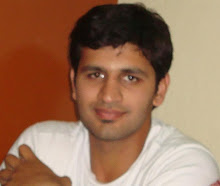Rural areas of Pakistan still remain a largely conservative society, where many young people shy away when it comes to marriages. Exceptions apart, arranged marriages are a cornerstone of rural society. It remains the responsibility of parents and marriages are mostly among people within the same tribe, caste, community, family or locality.
Moreover, on the arrival of barat, the dowry is displayed for every one to see and at the same place groom’s female relatives show what they have gifted (jewellery and clothing) to the bride. Both sides glorify the gifts. Paradoxically, in Punjab, a night earlier than the marriage date, groom visits homes of his friends and relatives where he is offered money. Other gifts mostly in the form of money (salami) or garlands made of currency notes are presented when groom gets ready for going to bride’s home. Customarily, groom dresses up in attire presented to him by one of his sisters and in return, he gives to his sister(s) what she demands. There are no marriage halls and the congregations take place in homes and or community centres (called Daras). There are no caterers. Local tradesmen prepare food and serve.
There is not much of a variation in the core marriage ceremonies in urban areas, only the way they are performed differ. In the cities, the assertive sons and daughters of an educated middle-class are finding new ways of meeting their match. Although many still have arranged marriages, it is no longer unheard of for couples to marry after having fallen in love or meting over the Internet or in a TV show. Court marriages are also not very uncommon.
Difference in thinking between modern urban elites and traditional rural families is reflected in marriages in many ways. Norms in the urban society have changed over the years and they are on the constant move. Vulnerable to satellite TV, Internet, higher education and affluence, urban population is open and highly receptive to the waves of modernity. Unlike in the past, the selection of marriage partners now is done from the groups that are similar in social characteristics. In present times, urbanites are now most likely to marry individuals who are in similar social group, educational attainment and social class.
Another interesting pattern that is now visible is the strong influence of the western society, which has now trickled down its norms to our youth who have proudly inculcated them into being ‘ours’. People in urban areas are slowly but surely moving towards the conjugal family system from our traditional and inherited consanguine system. Twenty years ago the scenario in Pakistani cities was quite the contrary.
Matchmaking by the third party is a preferred way now. This has given rise to match making business. Interested people are asked to provide details of eligible sons and daughters, as well as their requirements from a spouse and matchmakers do rest of he job. Marriages take place at marriage halls and hotels instead of homes.
The affluence and wealth makes a large difference in wedding ceremonies, in rural as well as urban areas. The more people have, the more elaborate are the rituals. But spirit everywhere remains the same

No comments:
Post a Comment